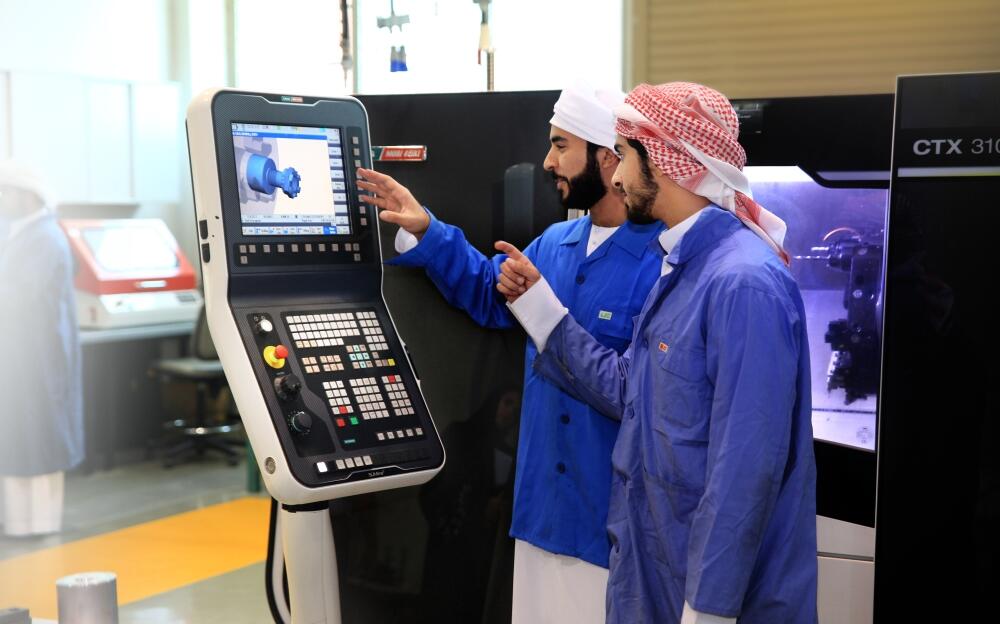A CULTURE of entrepreneurship needs to be weaved into engineering education if students are to be prepared to be the future drivers of economic prosperity and sustainability, researchers at United Arab Emirates University (UAEU) have claimed.
The findings of a research team from within two engineering-focused departments at UAEU have stated that while “entrepreneurship education” is assuming greater importance and relevance, and efforts are being made to employ it when nurturing a new generation of engineers, there are “barriers and challenges” that are holding up its implementation.
The researchers highlighted that the “condensed curriculum” and highly-technical nature of engineering courses is leaving little space for entrepreneurial activities to be integrated into them, and that there is “a lack of a unified and certified model” for making this happen, which they believe should be developed by universities’ key faculty to ensure the “high demand” for engineers with entrepreneurial skills can be met.
Led by Dr. Osama Abuzeid, Dr. Farag Omar, and Dr. Bobby Mathew, of UAEU’s Department of Mechanical Engineering, and Jwan Alkhalil, from the Al Ain-based university’s Department of Civil and Environmental Engineering, the study explained that entrepreneurship is a key factor in economic growth and innovation, adding: “The challenges that engineers face in transitioning the world of entrepreneurial activities and innovation, after spending a considerable amount of time receiving technical education, are due to a lack of relevant knowledge and skills such as business practice, accounting and finance, operations management, team-building, and crisis management.
“These additional skills in engineering graduates can be taught as part of entrepreneurship education.”
Citing leadership and management skills such as the ability to act on initiative, visionary thinking, opportunity-seeking, flexibility, and network and team-building, as examples of the entrepreneurial skills companies are looking for in the modern engineer, the researchers analyzed the methods and techniques used to evaluate entrepreneurship among undergraduates enrolled in UAEU’s mechanical engineering program. These include the ‘Engineering Practice and Entrepreneurship’ course, which is compulsory for all engineering students and allows them to develop and present a business plan.
The team also considered how entrepreneurial performance among engineering students is assessed and measured, and feedback from students, alumni, faculty, and employers. They pinpointed several key challenges to integrating entrepreneurship education into engineering programs at universities, saying: “Final grading of projects is challenging as they are usually qualitative and the instructor must balance the students’ lack of experience in entrepreneurship with the high expectations of the course.
“Typically, students tend to form their companies (through the entrepreneurship course) around relatively simple ideas, such as limited services and simple products, rather than bigger ideas that can make them successful entrepreneurs.”
They suggested that student teams should be small and diverse to “help stimulate learning”, and that entrepreneurship education should combine “classical teaching” and “hands-on approaches”, highlighting UAEU’s aim of including visits from alumni who have gone on to be successful entrepreneurs, and external investors, into its engineering programs. “The increased awareness of entrepreneurship among engineering graduates is the road to building a contemporary economy that is sustainable and innovative,” they said.
Founded in 1976 by the late Sheikh Zayed Bin Sultan Al Nahyan, UAEU is a comprehensive, research-intensive university enrolling about 14,000 Emirati and international students.
As the UAE’s flagship university, UAEU offers a full range of accredited, high-quality graduate and undergraduate programs through nine Colleges: Business and Economics; Education; Engineering; Food and Agriculture; Humanities and Social Sciences; IT; Law; Medicine and Health Sciences; and Science.
With a distinguished international faculty, state-of-the art new campus, and full range of student support services, UAEU offers a living-learning environment that is unmatched in the UAE.
As a research-intensive university of international stature, UAEU works with its partners in industry to provide research solutions to challenges faced by the nation, the region, and the world. The University has established research centers of strategic importance to the country and the region, which are advancing knowledge in critical areas ranging from water resources to cancer treatments.
UAEU is currently ranked the No. 1 university UAE, No. 6 in the Arab world, and No. 390 globally. — SG
Source: http://bit.ly/2v5XJaO











